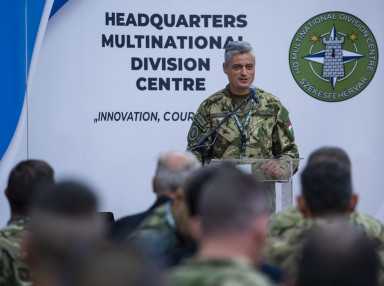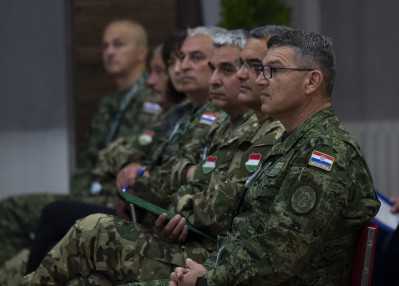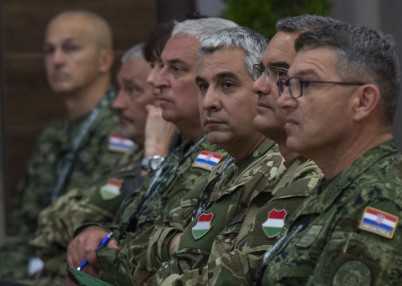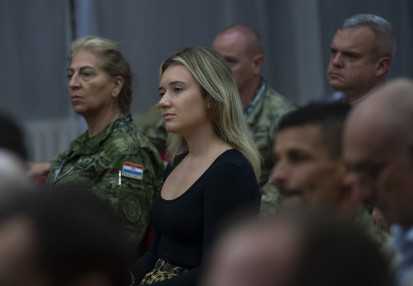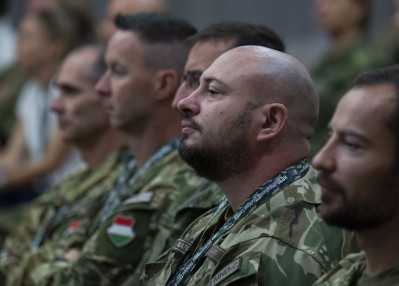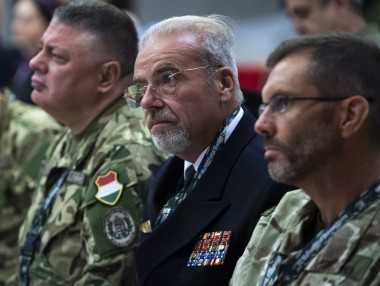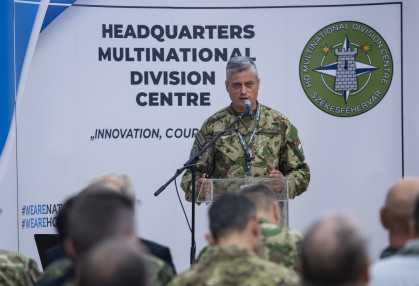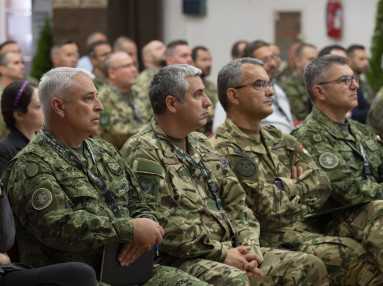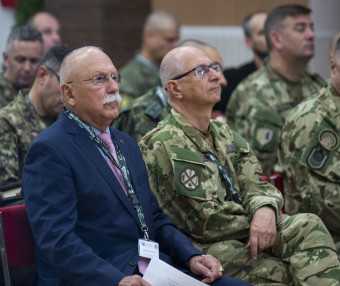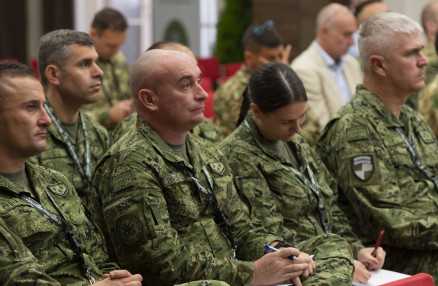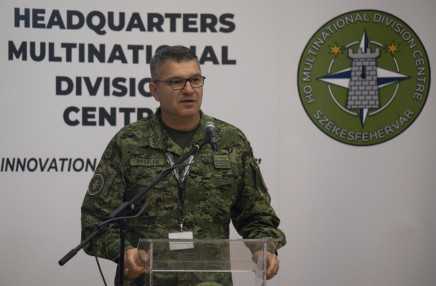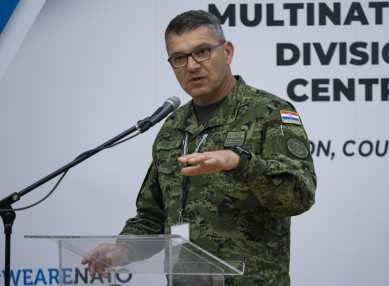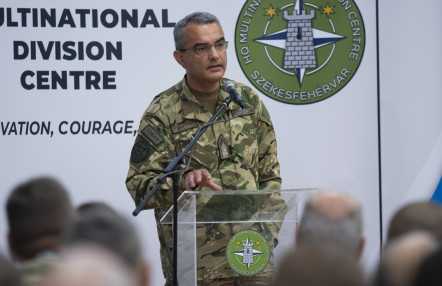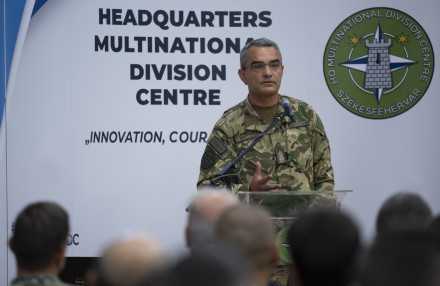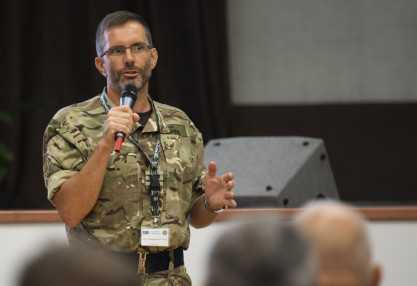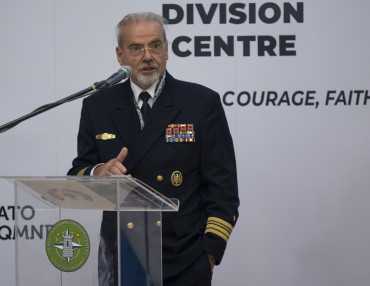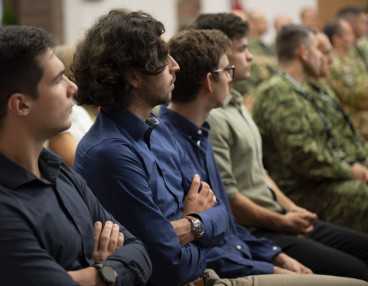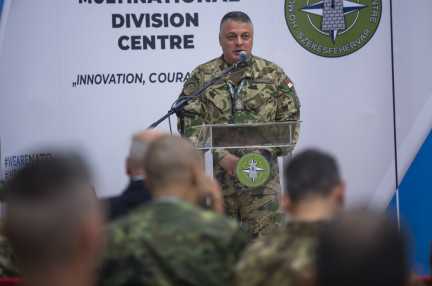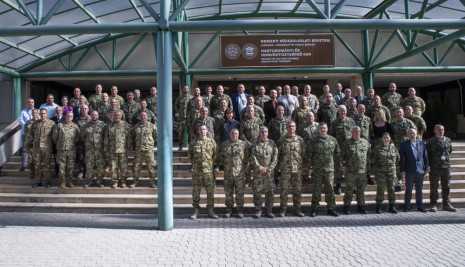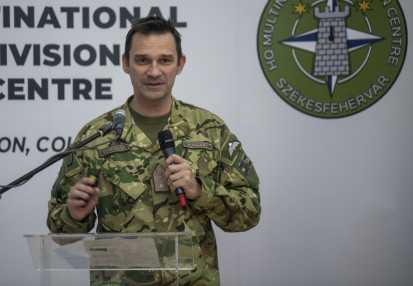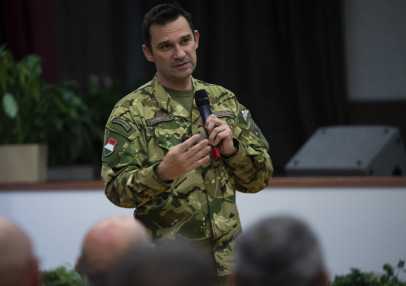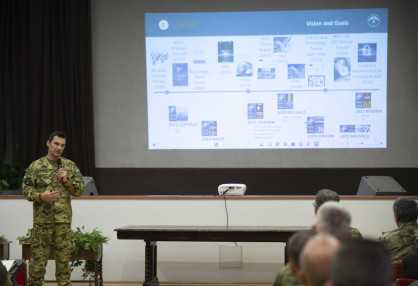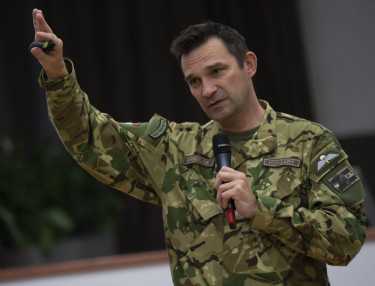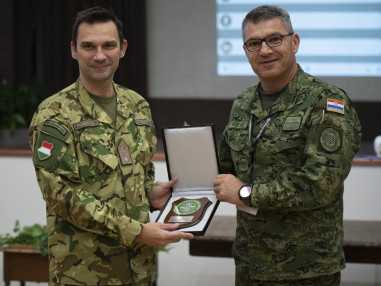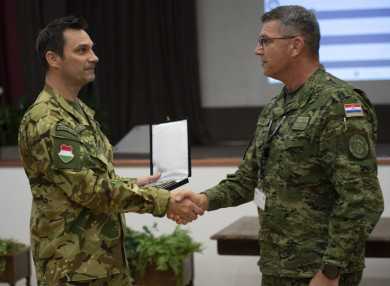Strengthening resilience is a collective task
Text: Péter Snoj | Photo: by the author | 11:40 October 3, 2023The resilience of a nation requires the preparedness and support of civil citizens as well. Perhaps this is how one could sum up, in a single sentence, the most important theme of the inaugural Civil-Military Interaction Seminar (CMI Seminar) organized by the Headquarters Multinational Division Centre (HQ MND-C) in Budapest between 26–28 September.
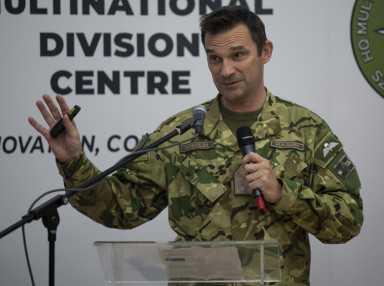
At the opening of the professional forum “Civil-Military Interaction Seminar” (CMI Seminar), Chief of Staff of the Székesfehérvár-based HQ MND-C, Brigadier General Dražen Ressler and Colonel Dr. Zoltán Jobbágy, Deputy Dean for International Affairs at the Faculty of Military Sciences and Officer Training at the Ludovika University of Public Service (Ludovika-UPS) extended a warm welcome to the participants.
The importance of the seminar, jointly organized by HQ MND-C, the Ludovika-UPS, and the Cyber Operations Command of the HDF, is well shown by the fact that the lectures delivered on the first day of the three-day event drew an impressive turnout of about 110 participants. Brigadier General Imre Porkoláb PhD, the ministerial commissioner for defence innovation delivered a keynote address on the first day of the professional discussion, in which he pointed out the close connection between innovation and resilience. As he said, Hungary intends to establish the strongest defence industry in the region by 2030, and is also planning to participate in EU and NATO defence industrial projects with a significant and continuously increasing presence. It also intends to apply for challenges like the ones featuring in the recent and future competitive calls of NATO’s Defence Innovation Accelerator for the North Atlantic (DIANA) – with some 1300 applications submitted to the three DIANA Pilot Challenges. He also talked about the Defence Innovation and Research Institute of Hungary (VIKI), which has an outstanding role in the defence innovation environment. Brigadier General Imre Porkoláb PhD also mentioned the NATO Test Centres such as the ZalaZONE Automotive Proving Ground built in Zalaegerszeg.
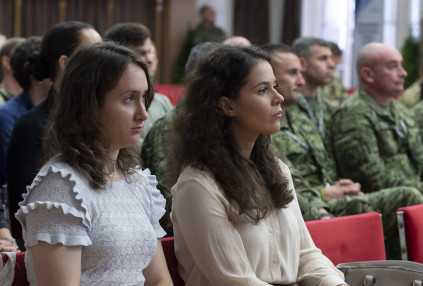
He spoke about the risks posed by the technological leaps driven by the increasingly rapidly changing field of Artificial Intelligence (AI), and also about the importance of connecting the fighting troops with the developers, since it is the latter who can deliver first-hand reports on the successes or faults of a given defence development project. In his presentation, he pointed out that although the development of the armed forces is highly important at all times, humans themselves, the soldiers continue to be the most important factor. By way of example, the mentioned the war going on in our neighborhood, about which he said that we can see innumerable items of Western- and Eastern-made military equipment, but at the end of the day, it is always the soldiers’ training level, education and willpower that raise man above hardware. The brigadier general drew attention to the indelible importance of agility.
The new procedures, new equipment and new ideas all demand a new kind of thinking, together with the ability to let go of the plans for decades ahead, since in the field of Artificial Intelligence alone, some disruptive technological development occurs every six weeks that sets aside all knowledge acquired so far.
In an interview to the press, Brigadier General Dražen Ressler stated that close and immediate cooperation with the civil society will be an indispensable part of future military operations. As an example, he highlighted the fact that 90% of the transportation capacity of any nation is in the civil sector. In order to make sure that the military can use this capacity if needed, the two sides must speak a common language on a common basis, and the civil society must also understand its own role and importance in national defence tasks.
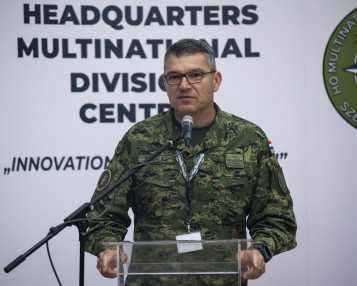
In answer to a question whether the citizens, too, also prepared for cooperation, Brigadier General Ressler said that when he had been a young officer, it was unimaginable – and even outside of the scope of thinking in that era – that joint and helpful relations could be established with civilians. Today, however, the world has changed a lot, and quite visibly, both sides have opened up to each other a lot. He added that in the societies of neighboring countries, the Russo-Ukrainian War has certainly highlighted the importance of knowing that there exists a national military force, and it is also important to know how these societies can help the soldiers’ work if needed. He called mutual trust highly important, and emphasized that it can be achieved and preserved through transparency and sharing the necessary information.
The Chief of Staff of HQ MND-C expressed his pleasure in also pointing out that there were many young people – among them, students of the Ludovika University of Public Service – attending the lectures in the room, since they are the ones who will consider this attitude natural as the adult generation of the future.
Speaking about the seminar’s focus on strengthening “Resilience through Civil Preparedness”, Brigadier General Dražen Ressler underlined that this is actually a never-ending process, as it does not have any end date, or a level the attainment of which would mean that there is no need to further perfect the resilience of the nations and the Alliance. The present three-day seminar and the plans for continued annual gatherings serve the goal of disseminating the most significant shared knowledge across the widest possible range.
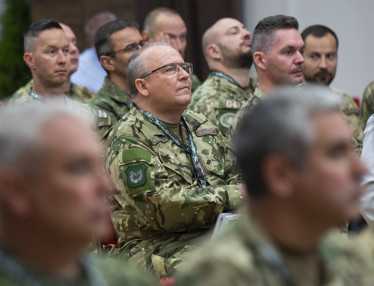
The expert speakers of the seminar examined six baseline requirements of resilience: resilient energy supplies; resilient food and water resources; ability to deal with mass casualties; resilient civil communications systems; and last but not least, the maintenance of the already mentioned transportation capacity. Lieutenant Colonel Tamás Harmath, G9 (CIMIC/PSYOPS/INFOOPS) Chief, HQ MND-C said that the key objective of the seminar is to develop a common understanding between the military and civilian mindsets and functioning.
However, to achieve this goal, it is not enough to have soldiers try to unravel among themselves the workings of the state and the civil sectors, the ways of supporting military objectives and the kind of information and conditions needed for this support. Likewise, the only way to have all those involved understand military needs and possibilities is to have them cooperate in harmony with each other. In the past, this dialogue was less pronounced in the concept of collective defence, which is the reason why this seminar has been organized with the aim of reaching out to the nations of the region, so that they can collectively establish and strengthen civil-military interactions in the years to come.
As Lieutenant Colonel Harmath also said, the organizers are very pleased to see that besides the 14 Hungarian and foreign military organizations, seven Hungarian ministries were also represented at the three-day lecture series. This also shows that all special fields and ministries equally consider national resilience as highly important. This time, the professional forum organized with the intention of starting a tradition focused on the above-mentioned topics expressly in the context of Hungary and the domestic features, but according to plans, the seminar to be organized annually will expand both in terms of its topics and the number of participating nations.
